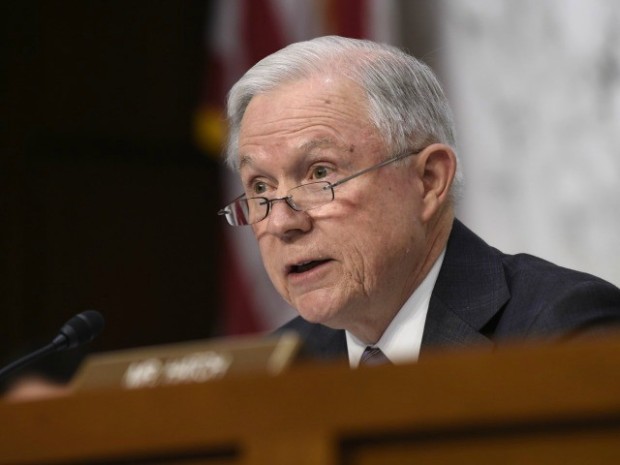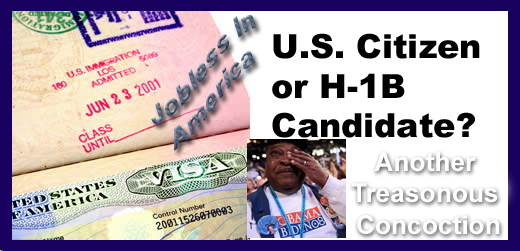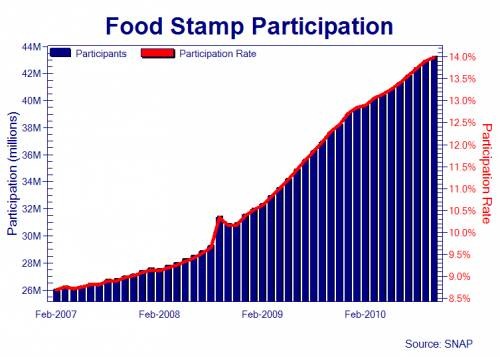Senator Jeff Sessions (R-AL) is one of the few members of Congress who has taken the time to jump through the hoops and read the Trans-Pacific Partnership (TPP). But, he has gone a step farther than other members – he told members of Congress what he read. He told the truth about what the TPP says and why Congress should oppose it in a five page letter to his colleagues. RINF
“Congress has the responsibility to ensure that any international trade agreement entered into by the United States must serve the national interest, not merely the interests of those crafting the proposal in secret,” Sessions’ team writes in a document that lays out the top five concerns with the Obama trade deal. “It must improve the quality of life, the earnings, and the per-capita wealth of everyday working Americans. The sustained long-term loss of middle class jobs and incomes should compel all lawmakers to apply added scrutiny to a ‘fast-track’ procedure wherein Congress would yield its legislative powers and allow the White House to implement one of largest global financial agreements in our history—comprising at least 12 nations and nearly 40 percent of the world’s GDP.
“The request for fast-track also comes at a time when the Administration has established a recurring pattern of sidestepping the law, the Congress, and the Constitution in order to repeal sovereign protections for U.S. workers in deference to favored financial and political allies.”
The Sessions document then goes point-by-point for five full pages through the TPA trade deal, laying out why it wouldn’t help Americans—rather, it would likely hurt American workers—and why the deal doesn’t in fact provide Congress with more power over trade despite talking points from the Obama trade deal’s proponents like House Ways and Means Committee chairman Rep. Paul Ryan (R-WI)
Senate Majority Leader Sen. Mitch McConnell (R-KY) and House Speaker Rep. John Boehner (R-OH).
The first point lays out how the deal would result in a “consolidation of power in the executive branch,” a point in which Sessions takes to task those like Ryan who have argued that the deal would return more power to Congress.
“TPA eliminates Congress’ ability to amend or debate trade implementing legislation and guarantees an up-or-down vote on a far-reaching international agreement before that agreement has received any public review,” Sessions writes. “Not only will Congress have given up the 67-vote threshold for a treaty and the 60-vote threshold for important legislation, but will have even given up the opportunity for amendment and the committee review process that both ensure member participation. Crucially, this applies not only to the Trans-Pacific Partnership (TPP) but all international trade agreements during the life of the TPA.
“There is no real check on the expiration of fast-track authority: if Congress does not affirmatively refuse to reauthorize TPA at the end of the defined authorization (2018), the authority is automatically renewed for an additional three years so long as the President requests the extension.
“And if a trade deal (not just TPP but any trade deal) is submitted to Congress that members believe does not fulfill, or that directly violates, the TPA recommendations—or any laws of the United States—it is exceptionally difficult for lawmakers to seek legislative redress or remove it from the fast track, as the exit ramp is under the exclusive control of the revenue and Rules committees.”
In addition to those concerns about how the deal would not in fact empower Congress—it would instead weaken Congress—Sessions notes that Obama or any future president could redact or classify information from a report the president would be required submit to Congress to get fast-track trade approval if TPA is adopted.
“Moreover, while the President is required to submit a report to Congress on the terms of a trade agreement at least 60 days before submitting implementing legislation, the President can classify or otherwise redact information from this report, limiting its value to Congress,” Sessions writes. “Is TPA designed to protect congressional responsibilities, or to limit Congress’ ability to do its duty?”
The second major point in the Sessions document details how passing TPA through Congress would result in “increased trade deficits.”
“Barclays estimates that during the first quarter of this year, the overall U.S. trade deficit will reduce economic growth by .2 percent,” Sessions writes. “History suggests that trade deals set into motion under the 6-year life of TPA could exacerbate our trade imbalance, acting as an impediment to both GDP and wage growth. Labor economist Clyde Prestowitz attributes 60 percent of the U.S.’ 5.7 million manufacturing jobs lost over the last decade to import-driven trade imbalances.”
Sessions also cites former AT&T CEO Leo Hindery, Jr., who wrote in a recent column for Reuters that since the North American Free Trade Agreement (NAFTA) and South Korea free trade agreements were passed and implemented, “U.S. trade deficits, which drag down economic growth, have soared more than 430 percent with our free-trade partners.”
“In the same period, they’ve declined 11 percent with countries that are not free-trade partners,” Hindery wrote, in the part where Sessions cites him, adding: “Obama’s 2011 trade deal with South Korea, which serves as the template for the new Trans-Pacific Partnership, has resulted in a 50 percent jump in the U.S. trade deficit with South Korea in its first two years. This equates to 50,000 U.S. jobs lost. “
As a result of all that, Sessions questions whether such a trade agreement would actually help—or whether it would hurt—the U.S. economy overall.
“Job loss by U.S. workers means reduced consumer demand, less tax revenue flowing into the Treasury, and greater reliance on government assistance programs. It is important that Congress fully understand the impact of this very large trade agreement and to use caution to ensure the interests of the people are protected,” Sessions wrote. “Furthermore, the lack of protections in TPA against foreign subsidies could accelerate our shrinking domestic manufacturing base. We have been getting out-negotiated by our mercantilist trading partners for years, failing to aggressively advance legitimate U.S. interests, but the proponents of TPA have apparently not sought to rectify this problem. TPA proponents must answer this simple question: will your plan shrink the trade deficit or will it grow it even wider?”
The third major point of Sessions’ “critical alert” document lays out how passing TPA, and then TPP, means the United States is effectively “ceding sovereign authority to to international powers.” Sessions cites the U.S. Trade Representative (USTR) and the Congressional Budget Office (CBO) to make his case, laying out how the so-called “living agreement” inside the TPP deal means that the deal could be changed by other countries and the president without congressional approval whatsoever.
That means that while China isn’t currently a part of the deal, if those countries that are a part of the TPP deal wanted to add the currency-manipulating nation to it, they could do so simply with the approval of whoever is the president of the United States at the time. Congress wouldn’t need to sign off. The other countries, with simple sign off by the president without congressional approval, could also change any other agreement terms—including opening the United States up to an influx of foreign workers aimed at replacing Americans in the workforce.
“A USTR outline of the Trans- Pacific Partnership (which TPA would expedite) notes in the ‘Key Features’ summary that the TPP is a ‘living agreement,’” Sessions wrote. “This means the President could update the agreement ‘as appropriate to address trade issues that emerge in the future as well as new issues that arise with the expansion of the agreement to include new countries.’
“The ‘living agreement’ provision means that participating nations could both add countries to the TPP without Congress’ approval (like China), and could also change any of the terms of the agreement, including in controversial areas such as the entry of foreign workers and foreign employees. Again: these changes would not be subject to congressional approval.
“This has far-reaching implications: the Congressional Research Service reports that if the United States signs on to an international trade agreement, the implementing legislation of that trade agreement (as a law passed later in time) would supersede conflicting federal, state, and local laws. When this occurs, U.S. workers may be subject to a sudden change in tariffs, regulations, or dispute resolution proceedings in international tribunals outside the U.S.
“Promoters of TPA should explain why the American people ought to trust the Administration and its foreign partners to revise or rewrite international agreements, or add new members to those agreements, without congressional approval. Does this not represent an abdication of congressional authority?”
The fourth major point of the Sessions document notes how TPA and the TPP deal would expedite do not address currency manipulation at all.
“The biggest open secret in the international market is that other countries are devaluing their currencies to artificially lower the price of their exports while artificially raising the price of our exports to them. The result has been a massive bleeding of domestic manufacturing wealth. In fact, currency manipulation can easily dwarf tariffs in its economic impact,” Sessions wrote.
Sessions cited how the Obama Treasury Department, in a 2014 biannual report, failed to designate China—which manipulates its currency as determined by any objective standard—as a “currency manipulator,” something Sessions notes that like the George W. Bush administration suggests that the Obama administration “will not stand up to improper currency practices.”
“Currency protections are currently absent from TPA, indicating again that those involved in pushing these trade deals do not wish to see these currency abuses corrected,” Sessions wrote. “Therefore, even if currency protections are somehow added into TPA, it is still entirely possible that the Administration could ignore those guidelines and send Congress unamendable trade deals that expose U.S. workers to a surge of underpriced foreign imports.
“President Obama’s longstanding resistance to meaningful currency legislation is proof he intends to take no action. The President has repeatedly failed to stand up to currency manipulators. Why should we believe this time will be any different?”
Over the next page-plus, Sessions lays out the last—but certainly not least—of his concerns with the TPA deal, noting how it “could facilitate immigration increases above current law,” and leaves Congress powerless to stop it.
“For instance: language could be included or added into the TPP, as well as any future trade deal submitted for fast-track consideration in the next 6 years, with the clear intent to facilitate or enable the movement of foreign workers and employees into the United States (including intracompany transfers), and there would be no capacity for lawmakers to strike the offending provision,” Sessions wrote. “The Administration could also simply act on its own to negotiate foreign worker increases with foreign trading partners without ever advertising those plans to Congress.”
Sessions cites specifically how the Obama 2011 trade deal with South Korea—which was “never brought before Congress”—increased the duration of time people can get L-1 visas to come into the United States and take jobs away from Americans. Sessions notes the L-1 visa program “affords no protections for U.S. workers.”
“Every year, tens of thousands of foreign guest workers come to the U.S. as part of past trade deals,” Sessions wrote. “However, because there is little transparency, estimating an exact figure is difficult. The plain language of TPA provides avenues for the Administration and its trading partners to facilitate the expanded movement of foreign workers into the U.S.— including visitor visas that are used as worker visas.”
Sessions cites the text of the actual TPA agreement next to lay out how foreign entities, special interests, and politically motivated presidents could pervert it clearly into bringing in foreign workers.
The TPA text Sessions cites reads as follows: “The principal negotiating objective of the United States regarding trade in services is to expand competitive market opportunities for United States services and to obtain fairer and more open conditions of trade, including through utilization of global value chains, by reducing or eliminating barriers to international trade in services… Recognizing that expansion of trade in services generates benefits for all sectors of the economy and facilitates trade.”
Sessions notes that specific language, and other language throughout the TPA, “offers an obvious way for the Administration to expand the number and duration of foreign worker entries under the concept that the movement of foreign workers into U.S. jobs constitutes ‘trade in services.’”
“Stating that ‘TPP contains no change to immigration law’ is a semantic rather than a factual argument,” Sessions wrote, debunking claims from Ryan and House Judiciary Committee chairman Rep. Bob Goodlatte (R-VA) — two of the biggest proponents of the trade deal—made last week. “Language already present in both TPA and TPP provide the basis for admitting more foreign workers, and for longer periods of time, and language could later be added to TPP or any future trade deal to further increase such admissions.”
Sessions notes that since Obama can’t be trusted because of his executive amnesty and other secretive, not-congressionally-approved increases in foreign workers, he can’t be trusted now. Nor should any president be trusted with such power, he said.
“The President has already subjected American workers to profound wage loss through executive-ordered foreign worker increases on top of existing record immigration levels,” Sessions wrote. “Yet, despite these extraordinary actions, the Administration will casually assert that is has merely modernized, clarified, improved, streamlined, and updated immigration rules.
- OBAMA HAS ISSUED 90,000+ SOCIAL SECURITY CARDS TO ILLEGAL ALIENS: WITHOUT JUSTICE THERE IS NO LIBERTY!
- WHEN OBAMA STRIKES IN EARNEST AGAINST THE UNITED STATES: THE COMING EBT (ELECTRONIC FOOD STAMP) RIOTS ~ WHEN FOOD FOR 47.3 MILLION AMERICANS IS STOPPED BY A PUSH OF A COMPUTER BUTTON ~ WHY ITS IMPORTANT TO UNDERSTAND!
“Thus, at any point during the 6-year life of TPA, the Administration could send Congress a trade deal—or issue an executive action subsequent to a trade deal as part of its implementation—that increased foreign worker entry into the U.S., all while claiming it has never changed immigration law. The President has circumvented Congress on immigration with serial regularity.
“But the TPA would yield new power to the executive to alter admissions while subtracting congressional checks against those actions. This runs contrary to our Founders’ belief, as stated in the Constitution, that immigration should be in the hands of Congress. The Supreme Court has consistently held that the Constitution grants Congress plenary authority over immigration policy.”
Sessions concluded the document by arguing that Congress should “slow down a bit” because Congress’ role—and the entire federal government’s role—is to protect Americans.
“Our government must defend the legitimate interests of American workers and American manufacturing on the world stage,” Sessions said. “The time when this nation can suffer the loss of a single job as a result of a poor trade agreement is over.”
Related Articles:
Source Article from http://politicalvelcraft.org/2015/05/25/senator-sessions-reads-obamas-tpp-bill-exposes-its-disastrous-contents-the-paper-hanging-destruction-of-middle-class-america/
Related posts:
Views: 0
 RSS Feed
RSS Feed

















 May 27th, 2015
May 27th, 2015  FAKE NEWS for the Zionist agenda
FAKE NEWS for the Zionist agenda 









 Posted in
Posted in  Tags:
Tags: 
















